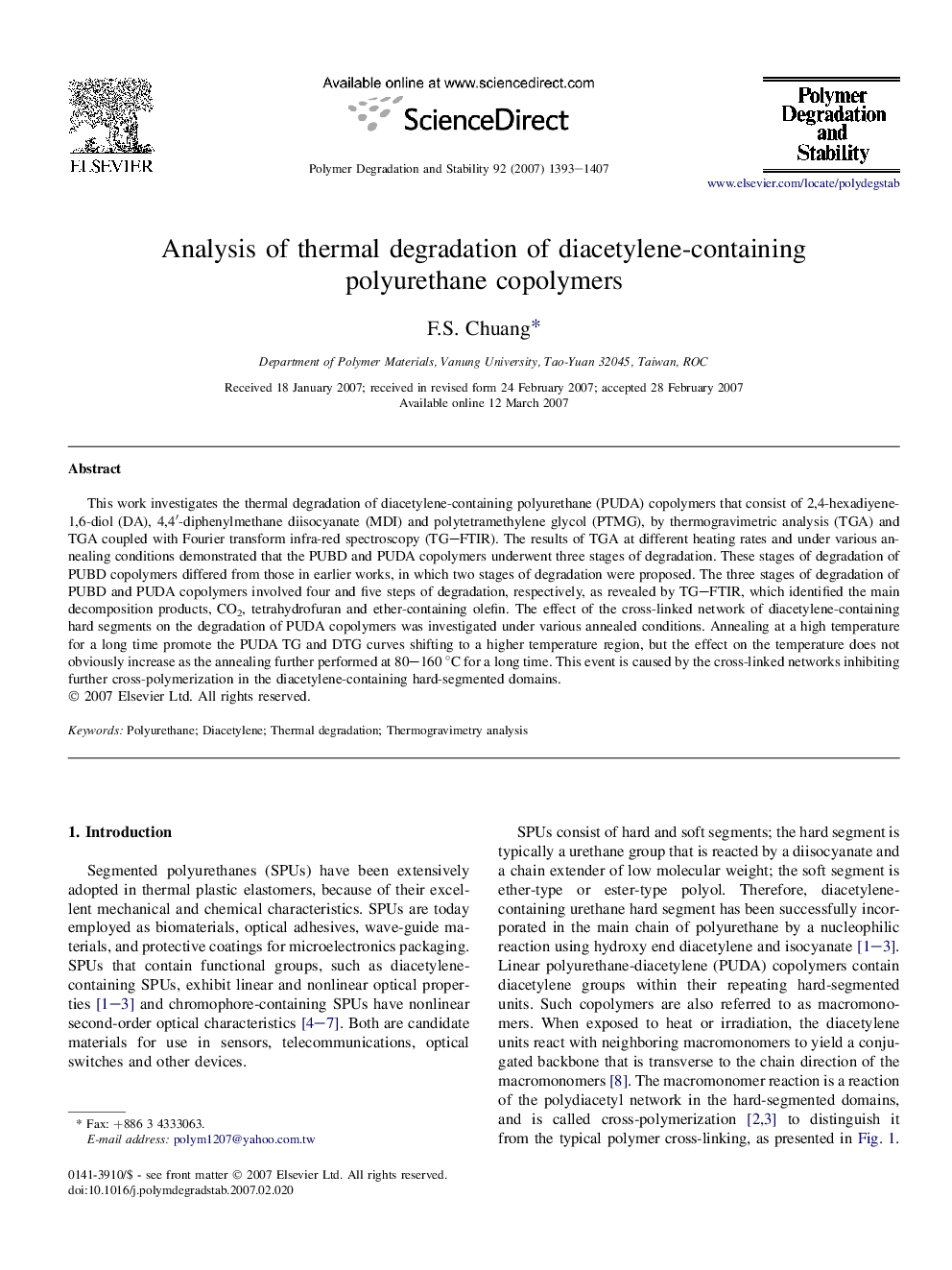| Article ID | Journal | Published Year | Pages | File Type |
|---|---|---|---|---|
| 5204760 | Polymer Degradation and Stability | 2007 | 15 Pages |
Abstract
This work investigates the thermal degradation of diacetylene-containing polyurethane (PUDA) copolymers that consist of 2,4-hexadiyene-1,6-diol (DA), 4,4â²-diphenylmethane diisocyanate (MDI) and polytetramethylene glycol (PTMG), by thermogravimetric analysis (TGA) and TGA coupled with Fourier transform infra-red spectroscopy (TG-FTIR). The results of TGA at different heating rates and under various annealing conditions demonstrated that the PUBD and PUDA copolymers underwent three stages of degradation. These stages of degradation of PUBD copolymers differed from those in earlier works, in which two stages of degradation were proposed. The three stages of degradation of PUBD and PUDA copolymers involved four and five steps of degradation, respectively, as revealed by TG-FTIR, which identified the main decomposition products, CO2, tetrahydrofuran and ether-containing olefin. The effect of the cross-linked network of diacetylene-containing hard segments on the degradation of PUDA copolymers was investigated under various annealed conditions. Annealing at a high temperature for a long time promote the PUDA TG and DTG curves shifting to a higher temperature region, but the effect on the temperature does not obviously increase as the annealing further performed at 80-160 °C for a long time. This event is caused by the cross-linked networks inhibiting further cross-polymerization in the diacetylene-containing hard-segmented domains.
Related Topics
Physical Sciences and Engineering
Chemistry
Organic Chemistry
Authors
F.S. Chuang,
